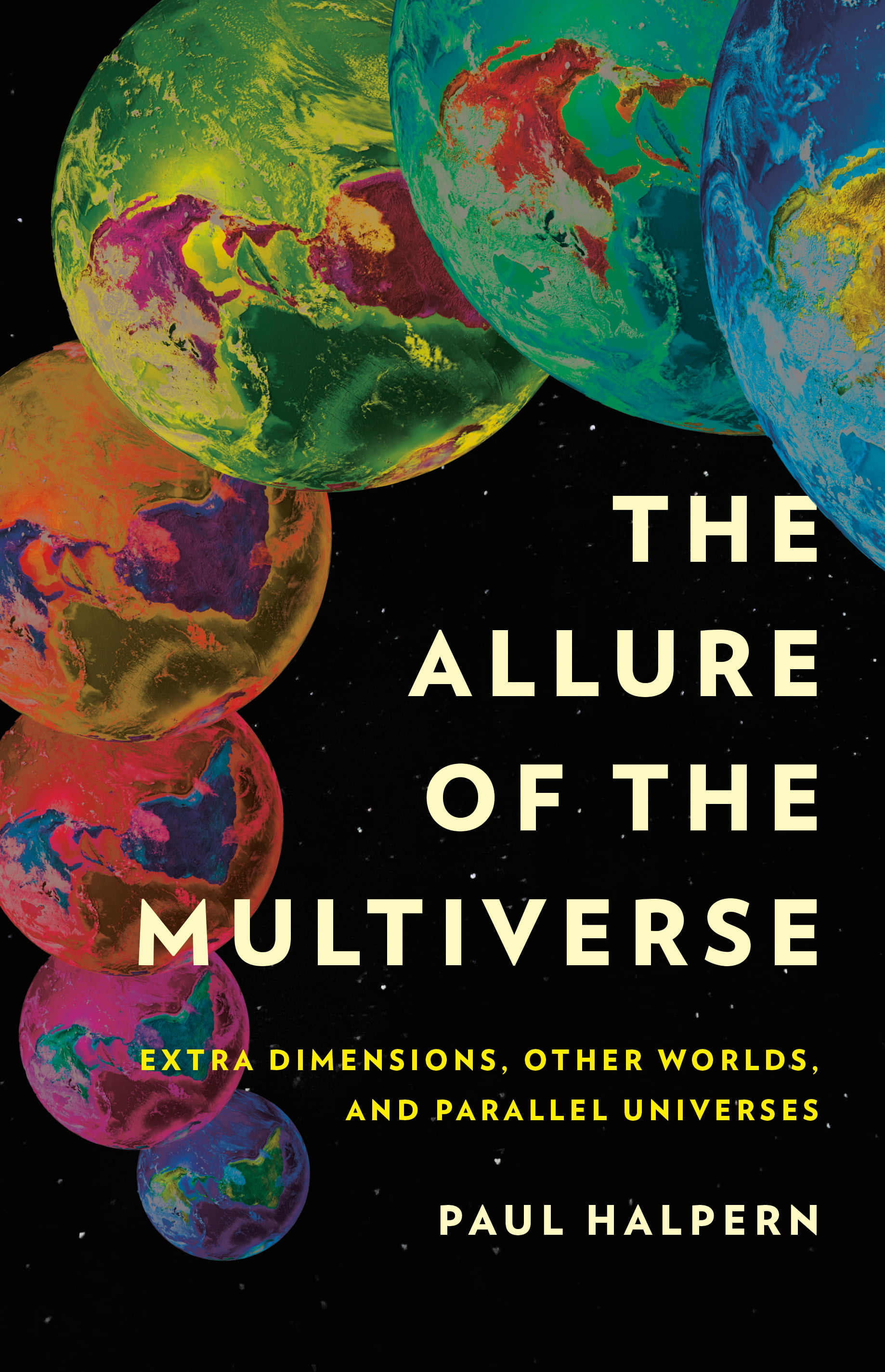What’s the Deal with Multiverse Madness?
Saint Joseph’s University Physics Professor Paul Halpern, PhD, attempts to answer that question and more in his new book, “The Allure of the Multiverse: Extra Dimensions, Other Worlds, and Parallel Universes.”

 Multiverse this, multiverse that — movies, books and TV shows seem to be obsessed with exploring the possibilities that come with alternative realities, and mainstream society is gobbling them up. It is a rare feat for such an abstract and complicated concept of theoretical physics and quantum mechanics to so easily capture the attention of the public. So just what is it about multiverses that fascinates us? And, more importantly, what even is a multiverse in the first place? Paul Halpern, PhD, author of the recently published book titled “The Allure of the Multiverse: Extra Dimensions, Other Worlds, and Parallel Universes,” provides some answers.
Multiverse this, multiverse that — movies, books and TV shows seem to be obsessed with exploring the possibilities that come with alternative realities, and mainstream society is gobbling them up. It is a rare feat for such an abstract and complicated concept of theoretical physics and quantum mechanics to so easily capture the attention of the public. So just what is it about multiverses that fascinates us? And, more importantly, what even is a multiverse in the first place? Paul Halpern, PhD, author of the recently published book titled “The Allure of the Multiverse: Extra Dimensions, Other Worlds, and Parallel Universes,” provides some answers.
Q: Let’s start with an easy one: What is the multiverse?
A: One of the first widely known ways of describing the multiverse came about back in the 1950s from a young student named Hugh Everett. The traditional idea of quantum physics is that it's like a black box that has all these possible outcomes. Someone opens the box and it collapses down into one of the possible answers. Everett came up with an alternative idea, which is that now all those possibilities exist, but somehow, our sense of reality splits up at that point. And different versions of us see the different possible answers. That later became known as the Many Worlds Interpretation (MWI) of quantum physics.
Q: In the book, this debate comes up on whether or not theories like the MWI should be studied at all. Where do you come down on that debate?
A: Some hard-headed physicists say something like, "Well, if it's not directly falsifiable, then we shouldn't consider it." But my answer is that there are a lot of things that are unknown, but we infer that it's true because of other things that we do detect.
Q: What’s the utility then? Why study multiversal theories?
A: Some multiverse ideas are used to try to come up with a consistent objective theory describing all of nature. It’s always been hard to predict the implications of theories, though. For example, Einstein came up with the photoelectric effect, meaning that if you shine light on metal, it releases electrons and creates a current. Nowadays that's used for any kind of digital camera like a phone camera ... and it just goes all the way back to Einstein.
Q: Why do you think we, as humans, care so much about the answers to these big questions of the universe?
A: Humans have a natural curiosity. There are these barriers in life that make it impossible for us to know what alternative paths and alternative directions we might have taken. It's this desire of wanting to see past this giant barrier of our observable universe.
Q: What about you personally? Why do you study the multiverse?
A: This book was kind of a realization of both my interests professionally and as a child in science fiction. I had the opportunity to see Isaac Asimov, the sci-fi writer, speak when I was a child and was really enmeshed in that scene. Then as a graduate student at Stony Brook University, we studied different models of the universe. That showed me how the Big Bang model is only one of a range of possibilities and kind of opened up my mind to the idea of exploring other possible universes.
Q: Are you a true believer then? Are we living in a multiverse?
A: I'm kind of agnostic about that. I don’t think that there is direct proof that the multiverse exists currently, but we should be open minded to it.
